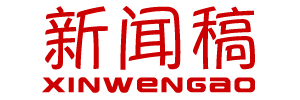Hong Kong, China, May 24, 2017 /Xinwengao.com/ - More than 5,000 organizations are escaping legacy security appliance overload with Zscaler
According to Zscaler?, Inc., the leading cloud security company, as the volume of encrypted internet traffic heads inexorably towards the 100% mark, organizations using on-premises architectures will not be able to meet the challenge using legacy appliances to inspect traffic and protect their networks.
Scott Robertson, Vice President Asia Pacific and Japan for the cloud security pioneer Zscaler?, Inc., who is speaking at the Cloud Expo Asia conference on Thursday 25 May, warns that businesses have a short time to meet the challenge or face digital extinction.
“Using appliances to meet the ever-increasing need to inspect encrypted traffic is costly, complex, and completely unsustainable. Legacy hardware approaches simply cannot keep up with the volume, and so organizations are turning to cloud solutions to provide the global scale and coverage they require,” said Robertson.
Gartner estimates that by 2020, more than 60% of organizations will fail to decrypt HTTPS efficiently, missing most targeted web malware, and a staggering 99% of vulnerabilities exploited will be ones security and IT professionals have known about for at least a year.
Zscaler’s? cloud security platform is an industry-recognized solution, architected from the ground up as part of a multi-tenant, distributed cloud security platform for the new, cloud-centric world of IT. SSL inspection is built into the platform, which currently inspects over 30 billion internet transactions a day across 100 data centers around the world.
Zscaler’s security cloud also protects against advanced threats with a cloud sandbox analyzing unknown files for malicious behavior. Delivery from the cloud means all users, regardless of location, get protection without cumbersome VPNs or Data Center backhaul links.nbsp;In addition, when Zscaler detects a threat for any of its millions of users, it blocks it at once and protects everyone.
“As well as being inherently scalable, another advantage of a cloud-based security solution like Zscaler is that there is no hardware or software to purchase and manage. Companies simply point their Internet-bound traffic to Zscaler, and it instantly begins inspecting every byte of traffic – all bytes, all ports, and all protocols, including SSL, for all users,” he said.
“What’s more, because it’s built on a vast, global platform, there is no performance penalty. In a very real way, embracing cloud security can mean the difference between long-term success of dying out like the dinosaurs who were unable to adapt to a rapidly changing environment,” Robertson added.
“Organizations first want visibility,” said Robertson. “They want to see a global view of traffic, threats, users, and applications in their organization. With appliances, the onus is on the IT team to cobble together that visibility. With Zscaler, we give you that global view from day one. To demonstrate that, we’re sharing an unprecedented look inside makeup of the more than 30 billion transactions we protect daily.”
Robertson will examine the aggregated data through several lenses to explore topics like traffic patterns in various geographies, types of malware and threats that target specific vertical industries, and risks associated with specific applications.
“Cloud security delivers all the services an enterprise needs — antivirus, firewalls, sandboxes, URL filters, SSL inspection, and the rest — in a unified platform service from the cloud. It’s airtight security without the cost and complexity of stacks of appliances. Because the security cloud is everywhere, positioned between every user and the Internet, it closes security gaps created by mobility and BYOD,” he said.
Don’t miss Robertson’s Cloud Expo Asia conference talk, entitled “How Secure Are You? Insights from 30 Billion Transactions a Day,” at 13:30 – 13:55 on Thursday 25 May in the Cloud Security, Compliance amp; Regulation Theatre.
Meet the Zscaler team at BOOTH C30 at the Cloud Asia Expo to learn more about the changing network transformation landscape as traditional network perimeters around corporate assets disappear.

